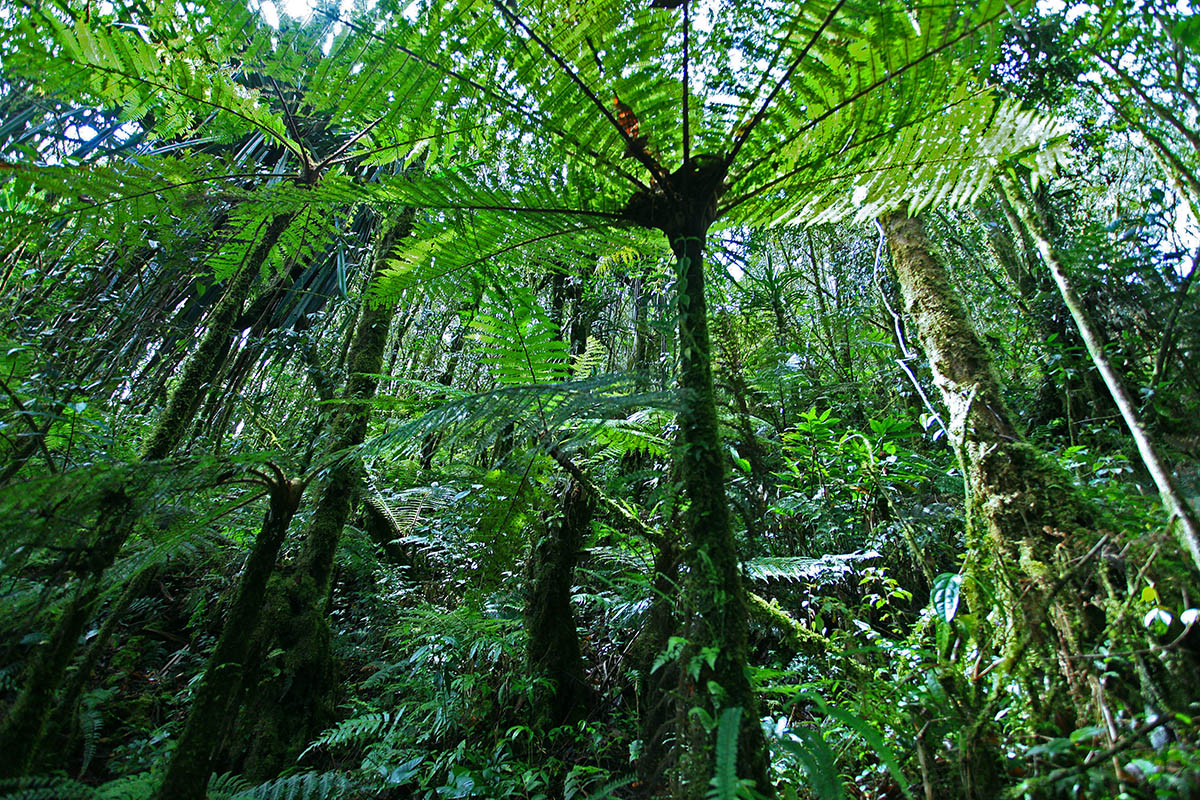Environment
The Ethical Case for Conservation
The conservation of nature is an ethical imperative. Every sentient being’s welfare – human or non-human – should be taken into account in our moral considerations.

The conservation of nature is an ethical imperative. Every sentient being’s welfare – human or non-human – should be taken into account in our moral considerations. As a young conservationist enthralled by the natural world throughout my life, it is thrilling to see these ideas becoming commonplace. It is now easy to hear them voiced in one form or another in almost every discussion regarding the use of natural resources, deforestation, meat consumption, trophy hunting, or any other topic that touches animal welfare or environmental issues. In spite of the immense challenges conservation still faces, this development is evidence of a positive cultural revolution, and heralds the moral advancement of our global society.
However, part of the reason these ideas spread so quickly is that they proliferate like memes. That means that while they run fast, they often run shallow. When asked if a given forest should become a reserve, or if we ought to gather resources to aid an endangered species, many people fall back on assertions about the intrinsic value of the entity in question. I would be the first to defend this sort of moral intuition, but it is generally offered as a single and final argument, something vaguely akin to a dogma. When someone objects that, for example, resources could be used to save many human lives, constructive discussion can break down into an intemperate exchange of slogans and accusations. Environmentalists often assume ill intentions on the part of our opponents and dismiss the values they stand for. This is profoundly counterproductive. Yelling “nature is important and you are an idiot” will not win any hearts or minds among our opponents or undecided bystanders. Calm and logical debate, however, might actually help move our ethical enterprise forward.

Before going on, it should be acknowledged that there are many good reasons to care for wildlands and its inhabitants. Yellowstone, one of the most famous national parks of the world, was initially protected for its aesthetics and the sentiment its ‘untamed’ beauty evoked. Experiencing and contemplating nature are important parts of many religious doctrines. There are also a number of utilitarian considerations that can be made in favour of preserving at least some of the species that coexist with us. But here I want to focus on the ethical arguments for nature conservation by addressing some common objections.
There are actually only a few of these, but they appear in different guises depending on the context. A recurring category of objection emerges from an apparent misinterpretation of biology itself, or from a persistent confusion between what is natural and what is moral. These include statements such as “extinction is a natural process and all species will disappear someday” and “Homo sapiens’ imposition upon other species is a simple matter of survival of the fittest.”
This kind of argument is easily answered. Even if we set aside the fact that there is nothing natural about current rates of extinction – estimates range from hundreds to thousand times faster than background rates for some groups1 – to argue that something does not deserve protection because it will inevitably die out someday is senseless, and the reason should be immediately obvious. Under this premise, life of any kind and in any quantity would be worthless. The death of a hundred people in a flood would be unimportant, because they would eventually die anyway, and thousands more would be born to replace them. The ‘survival of the fittest’ argument – an expression that is carelessly misused – is no more persuasive. It rests on a misunderstanding of evolution that fails to recognise two crucial facts: that the process of differential reproduction, the actual evolutionary engine, is more nuanced than the implied image of struggle can communicate; and that this process happens between individuals in a population, not between species. More importantly, both arguments trip over the naturalistic fallacy. They establish a false connection between ethics and nature, and in doing so, miss the point of the discussion by a mile.
Other criticisms of conservation actions, however, merit more careful consideration. Most people feel – quite understandably – that human lives are worth more than animal lives. This leads many to consider any kind of environmental investment a waste of time, money, and effort. This claim seems to be even more convincing when we jump from caring about other species to protecting whole ecosystems. We know by now that these very systems are not static, and that they change and rearrange over time. So what could be the point of keeping them unaltered by our civilisation’s activities? The counterarguments are a bit harder to unpack, but they are nevertheless solid, and derive from a similar moral intuition: that human life is valuable.
The primacy of human life is taken for granted by most people as an ethical bedrock. But if we inspect people’s beliefs a little more closely, a more nuanced story of our moral intuitions emerges. Our societies, by and large, have passed laws that allow families to withdraw life support from loved ones who have suffered brain death. Several polls taken in developed nations in a variety of contexts show that large majorities approve of voluntary euthanasia for terminal patients in pain. These findings suggest that we see fundamental importance in something other than a beating human heart. It seems that our capacity to experience our surroundings, to live thriving emotional and mental lives, carries at least as much weight. Once we accept that premise, the need to incorporate other species into our ethical considerations follows as a matter of logical consistency.
Animal sentience is no longer a matter of reasonable doubt. Evolution and neurobiology have done much in the past few decades to show how qualitatively similar the brains of our close relatives are to our own. Humans might have developed more advanced capabilities than our wild kin in some respects, but the bits of the machinery responsible for cognition and emotion are remarkably similar. We have no reason to suppose that when we suffer, we do so more intensely than a chimp, an elephant, or a crow, or that our sense of the sublime is more sublime than that of other mammals. Even if we are to prioritise the well-being of our own species, we still need to grant other sentient beings some value. Any human endeavour, however inconsequential to people’s actual welfare, cannot automatically take precedence over the rest of the natural world. The utilitarian ideal of creating an environment where the greatest amount of sentient beings possible will experience the greatest amount of well-being possible must remain a parameter in our moral judgement.
So far I’ve focussed on the need for humans to take account of the interests of other kinds of sentient life. But conservation also involves the protection of lifeforms lacking sentience and even entire ecosystems. Concern for these entities can be justified by observing that animals depend on them in ways that go beyond ecology. A species must evolve in accordance with the conditions that surround it, and including the ways in which it modulates subjective experiences, which often have a practical function in an animal’s life history. Fear warns of danger, discomfort accompanies the unfamiliar or strange, joy rewards actions that are favourable to flourishing. These sensations and their intensity will in large part be dictated by the environment a species inhabits. That is why taking an animal out of its native environment induces stress. It is not by accident or on an aesthetic whim that enclosures in well-structured zoos are fashioned to resemble the occupant’s original habitat.
The constraints of evolution grant that an animal’s native environment is much more likely to favour its welfare than any other taken at random. It is true that ecosystems per se are incredibly adaptable to change. Decades of clearing and regrowth, unnatural fires, and the extinction of large fauna may not cause a forest to cease to be a forest. They will, however, make it a different forest in important and consequential ways. This is part of the painful history of the remaining fragments of the Brazilian Atlantic Forest, for example. Instead of a tall canopy held by thirty meter trees, most of these fragments now maintain a thick low vegetation, and piles of large seeds and fruits rot on the ground due to an absence of consumers and dispersers. Aside from the direct impact on the animals that have consequently become extinct, the lives of every creature that inhabits the forest are necessarily reshaped along with it. Such rapid changes provide no time for evolutionary adaptation. Their world simply reforms around them, and usually not for the better. Whenever we alter a landscape, we usually do so with no respect to its inhabitants’ needs, and therefore usually cause damage.
All the arguments for conservation made here can be derived from the simple proposition that human life is valuable. That provides a solid foundation for ethical discussions that go beyond a superficial exchange of personal – and often conflicting – ‘truths.’ We may not see the outcome of our efforts materialised, but the energy we invest now can really make a difference to the welfare of other creatures in the long term. The more we devote now, and the more efficiently we do it, the more suffering we are likely to prevent in the future. Dealing with constant opposition and stubborn indifference can be frustrating, but that is no reason to let our voices become angry and misguided.
On the contrary, there are grounds for optimism. Our concern for other species has never been greater, and this consciousness-raising was achieved by the tireless, patient work of generations of environmentalists, scientists, and ethicists, and by those that echoed their thoughts and followed their lead. Where ideas are concerned, time appears to march in our favour. What we must do now is build on these foundations with the same commitment to eloquence and clear thinking. Reason is on our side.
Reference:
1 De Vos, J.M., Joppa, L.N., Gittleman, J.L., Stephens, P.R., Pimm, S.L. 2015. Estimating the normal background rate of species extinction. Conservation Biology 29: 452–462. http://onlinelibrary.wiley.com/doi/10.1111/cobi.12380/abstract






